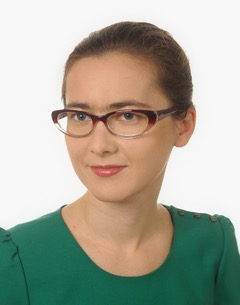DATE
September 9-11, 2019
DURATION
3 days (18 hours)
10:00 a.m. - 16:00 p.m.
PLACE
13 Stare Polaszki Conferenca and Recreation Centre (Centrum Konferencyjno-Rekreacyjne Stare Polaszki) between Kociewie and Kaszuby | http://starepolaszki.pl
A new building open for use in March 2019
TRAINING PROGRAMME
September 9, 2019
PART I - INDIVIDUAL LABOUR LAW (Joanna Unterschütz)
EMPLOYMENT CONTRACT
- Types of Contracts of Employment
- Termination of an Employment Contract
- Telework
WORKING TIME
- Notion of Working Time
- Periods of Rest
- Systems and Schemes of Working Time
- Overtime Work
- Work on Sundays and Holidays
- Night Work
- Specific Issues: on-call work and business travel
- Criminal Sanctions
LEAVES
- Annual Leave
- Acquisition of the Right to Leave
- First Annual Leave
- Annual Leave Plan
- Leave on Demand
- Postponing the Annual Leave
- Returning the Worker from Leave
- Proportional Leave
- Leave During the Period of Notice
- Holiday Pay
- Annual Leave Equivalent
- Unpaid Leave
- Occasional Leave
- Other Types of Leaves (e.g. leaves for working parents)
WORKING HOURS
- Working Time in the Reference Period
- Calculation of the Working Time for the Employee
- Periods of Rest
SYSTEMS AND TIMETABLES OF WORKING TIME
- The Concept of Day and Week in the Labour Code
- Method of Determining Systems and Schedules of Working Time
- Basic Working Time System
- Equivalent Working Time System
- Work at the Supervision of Devices
- Work in Guarding Property and Supervision
- Interrupted Working time System
- Interruption of a Meal or Taking Care of Personal Matters
- Shift Work
- Work in Continuous Motion
- Short Work Week System
- Weekend work system
- Individual Time Schedule
- Reduction of Working Time
OVERIME WORK
- Definition
- Overtime Work
- Days off for Overtime Work
- Supplement for Overtime Work
WORK ON SUNDAY AND HOLIDAYS
- Work on Sundays and Holidays
- Compensation for Work on Sundays or Public Holidays
- Work on Holidays in Commercial Establishments
WORK AT NIGHT
- Definition
- Limitations
DISCRETIONARY ISSUES
- On-call Work
- Business Trip
September 10, 2019
PART II - COLLECTIVE LABOUR LAW
(Ewa Podgórska-Rakiel)
WORKERS' PARTICIPATION
- Trade Unions
- Protection of Trade Union Leaders
- Equal Treatment
- Cooperation
- Ad hoc Representatives
- European Works Council
- Negotiation
- Prior Consent
- Consultation
- Dialog
COLLECTIVE AGREEMENTS
- Labour Law Agreements
- Other Agreements
COLLECTIVE LABOUR DISPUTES
- Parties
- Stages
- Mediation
- Conciliation
- Arbitration
- Strike
- Warning Strike
- Referendum
- Restriction
- Other Industrial Action
INTERNATIONAL LABOUR ORGANIZATION
- ILO Standards
- Consequences Complaint to the ILO for Employer and for the Government
PART III - POSTING OF WORKERS
(Ewa Podgórska-Rakiel)
- Definition of Posting
- Terms and Conditions of Employment Applicable to Posted Workers
- Definition of a Worker and Posted Worker
- The Directives Lists the Terms and Conditions of Employment of the Host Member State that must be Granted to Posted Workers
- Collective Agreement Made Universally Applicable
- What does “remuneration” mean in the context of posting of workers
- Reimburse Travel, Board and Lodging Costs
- Duration of Posting
PART IV - EMPLOYMENT OF FOREIGNERS
(Ewa Podgórska-Rakiel)
- General Principles
PART V - WORKPLACE VIOLENCE PROTECTION
(Dorota Majewicz)
- Workplace Bullying
- Workplace Violence
- Working Well with Everyone - the Power of Good Communication
- Dignity for All Workers/Code of Conduct
- Discrimination
- Sexual Harassment
- Workplace Substance Abuse
- Diversity Training
- Anti-Harassment Training
- Workplace Safety
- Ethics and corruption
- Privacy
September 11, 2019
PART IV - DATA PROTECTION AT WORK (Tomasz Będźmirowski)
GENERAL DATA PROTECTION REGULATION
- Regulation (EU) 2016/679 of the European Parliament and of the Council of 27 April 2016 on the protection of natural persons with regard to the processing of personal data and on the free movement of such data, and repealing Directive 95/46/EC
- Unified General Rules of Personal Data Processing (principles, conditions, measures)
- Specificity of Data Processing in the Context of Employment (consent, special categories of data, other)
- National Specific Rules in the Context of Employment (recruitment, employment contract, workplace)
RECRUITMENT
- Actors in Various Recruitment Schemes (controller, processor, other)
- Legal Grounds for Processing (statutory, contractual, consensual)
- Polish Labor Code in the Age of GDPR (application, interpretation, enforcement)
EMPLOYMENT RELATIONSHIP
- Data Processing of and by Employees/Workers (rights, duties, liability)
- Data Processing by Employers/Group of Undertakings (rights, duties, liability)
- Data Processing by Third Parties (rights, duties, liability)
TRAINERS PROFILE
 prof. Joanna Unterschütz
prof. Joanna Unterschütz
Professor at the University of Business and Administration in Gdynia. Expertise in criminal labour law, collective labour law and new forms of work. Author of books and articles published locally and internationally. Active participant of international research projects and conferences. Member of the Transnational Trade Union Rights Experts Network. Cooperates with the Polish Institute of Human Rights and Business mainly in the field of human rights in Polish shipyards.
 Ewa Podgórska-Rakiel, PhD
Ewa Podgórska-Rakiel, PhD
Lawyer, owner Labour Law Counselling and Training Firm with many years of specializing in labour law, which has been her area of work since 2003. Currently, she leads the labour and employment law practice at BRIEF&CASE Kancelaria Radców Prawnych Będźmirowski, Zinkiewicz i Partnerzy. She obtained the title of PhD in legal studies, and graduated of English studies. Author of numerous books, scientific papers in the area of labour law. She participates in the European Commission’s Committee of Experts on Posting of Workers and she is a member of the Working Subgroup on Implementation of the Directive (EU) 2018/957 concerning the posting of workers.
 Dorota Majewicz, PhD
Dorota Majewicz, PhD
Cooperation Coordinator for Mediators, Courts and Other Institutions at Regional Court in Gdansk. Assistant Professor in the Institute of English and American Studies at the University of Gdansk, Poland. Her initial research was related to the axiology of persuasion and manipulation and linguistic means of the expression of emotional states. Her current research interests include primarily the discourse analysis of conflict management with the use of Alternative Dispute Resolution methods with emphasis on international mediation processes, facilitation of aggressive linguistic behaviors and their effects on workplace efficiency and social relations.
 Tomasz Będźmirowski, Attorney-at-law
Tomasz Będźmirowski, Attorney-at-law
Managing partner at BRIEF&CASE Kancelaria Radców Prawnych Będźmirowski, Zinkiewicz i Partnerzy with its registered office in Gdynia. Attorney-at-law, member of the Regional Chamber of Attorneys in Gdansk, and graduate of the Faculty of Law and Administration at the University of Gdansk and LL.M. International Commercial Law studies at Kozminski University in Warsaw; lecturer, trainer. He provides legal services for the IT/e-commerce/marketing industry in Polish and English.
PRICE
2450,00 PLN (+23%VAT) includes:
- Accomodation - 2 nights
- Breakfast - 2 days
- Lunch - 3 days
- Dinner - 2 days
- Coffee breaks and snacks
- Teaching materials
- Certificate of a course attendance
ENTRY FORM

